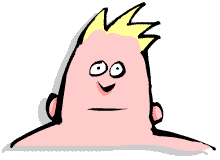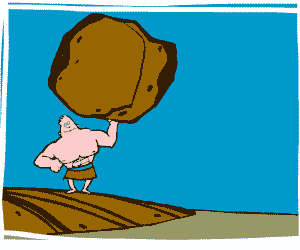
You will receive a paper version of the myth, "Heracles" in class... Here's an on-line version of the myth that you read, and it's even animated!
http://www.mythweb.com/hercules/index.html
Figures of Speech and Mythology... Lesson in class with questions... Here's the link...
http://www.mythweb.com/today/today01.html

Heracles and the Twelve Labours Questions
Pre - reading Questions
Can a person who has killed someone become a hero? Why? Why not?
Is killing someone who is bad heroic or a sin?
Do heroes have to be moral role models?
Do heroes have to live virtuously in all areas of life?
During Reading Questions
1. Why was Heracles punished and made to do his twelve labours?
2. List these twelve labours, and summarize what they were briefly in one sentence.
3. What heroic traits did Heracles need to complete the labours?
4. What are the vales learned in reading about Heracles?
5. In spite of all the good deeds or labours Heracles completed, did these actions atone for his sins? (Remember why he was forced to do the good deeds).
After Reading Questions
6. “Plotting the Myth” - Using the story pyramid handout, analyze this myth according to the following plot elements.
a. Setting (where, when the myth takes place)
b. Exposition (initial or inciting incident)
c. Conflict – Internal and External (Internal conflict is the conflict a character feels inside emotionally; External conflict is the conflict that the main character or protagonist has with another character, usually the antagonist)
*Internal Conflict
*External Conflict
d. Rising Action (series of key events that lead to the climax)
e. Climax (turning point) – This is the main event or key event, because after this, everything changes. If things have been going badly, then at the climax, things will begin to go well for the protagonist.
f. Falling Action – Conflict “unravels” with the main character winning or losing. It may contain a moment of final suspense.
g. Denouement or Resolution – How the story ends for the main character. Is the main character in a better situation or worse?
7. Figures of Speech from Greek Mythology
a. Are the Greek myths relevant today? Consider the extent to which characters from Greek mythology appear in everyday speech. For instance, a huge or heroic task is said to Herculean. Why is this?
b. In another figure of speech from Greek mythology, a Sisyphean task is one that requires continual effort that never quite pays off. This is named for Sisyphus, who paid eternally for his crimes by rolling a boulder uphill. Every time it reached the top, it rolled back down again and Sisyphus was compelled to start anew.
c. Like Sisyphus, Tantalus was sent to the Underworld's region of eternal punishment, where he stood in a pool of water under boughs laden with fruit yet could satisfy neither hunger nor thirst. How does the word “tantalize” connect to the myth?
d. “Trust the Midas touch” you’ve heard the commercial jingle… The Midas Touch means the gift of profiting from whatever one undertakes, is named for a legendary king of Phrygia. Why would Midas Brakes use this character in naming their company or creating the commercial slogan?
e. What about Atlas? The Titan who supported the heavens on his shoulders. How does that connect to YOU or learning?
f. Something colossal in size or power (such as a supposedly unsinkable ocean liner) is said to be titanic. This adjective comes from the Titans, the gargantuan firstborn sons of the goddess Earth. What connection does the Titanic have with the fate of the Titans?
g. Stygian can mean infernal, gloomy or characteristic of death, what Underworld river does this word come from?
h. The word Promethean describes a daringly creative or defiantly original act, how does this connect to the Titan Prometheus, who defied the wrath of the gods in order to benefit humankind?
i. Research this one… A point of vulnerability is an Achilles' heel, because the mythological warrior Achilles had been magically protected in all but ________ (Where? Why was this?)
j. And finally here's a word you may have used before without realizing your debt to Greek mythology. The word panic comes from the goat-god _______. How does the meaning connect to the god?
8. Mythology in the Modern World… Find 5 other examples of mythology in the modern world. For example a football team might be called the Titans. Chosen mainly because they were gods (defeated, but nevertheless, gods).